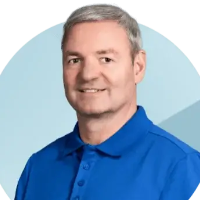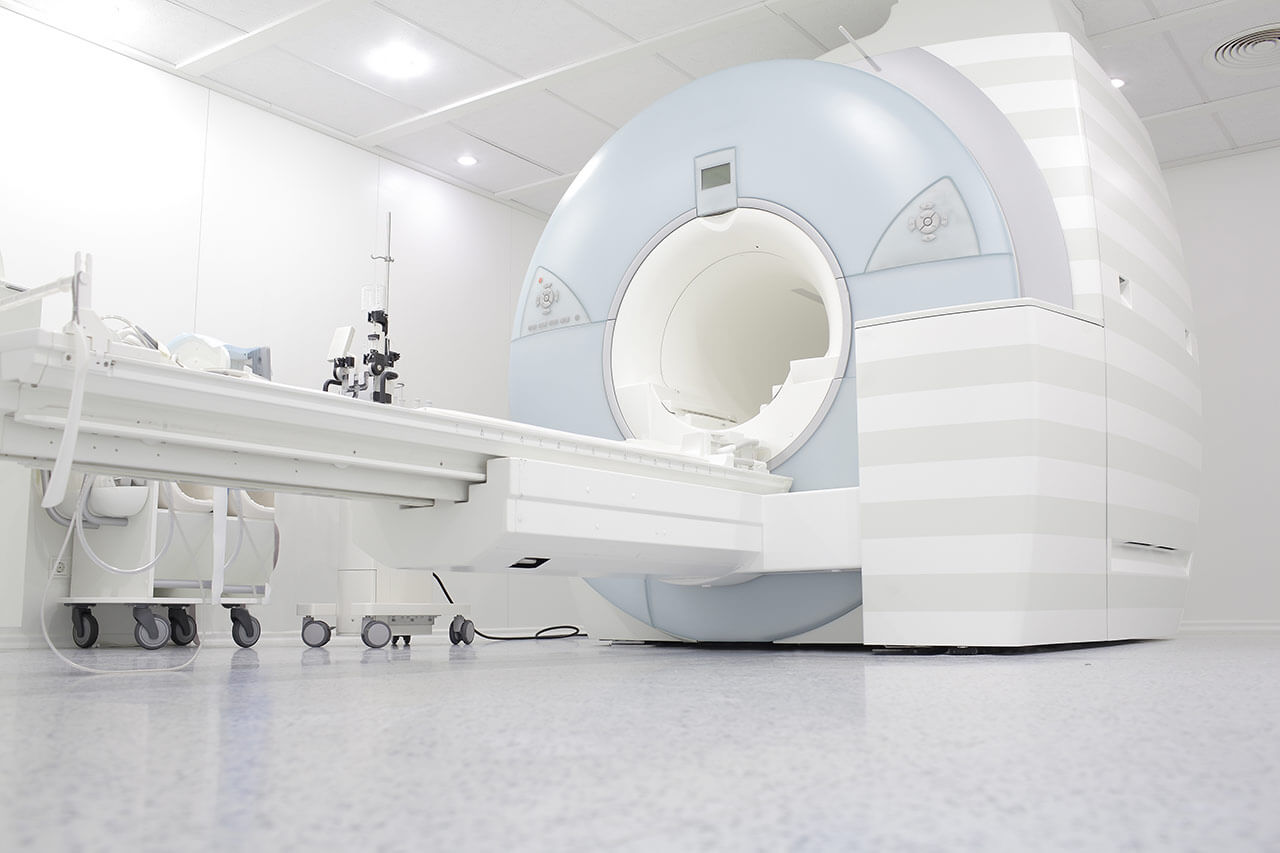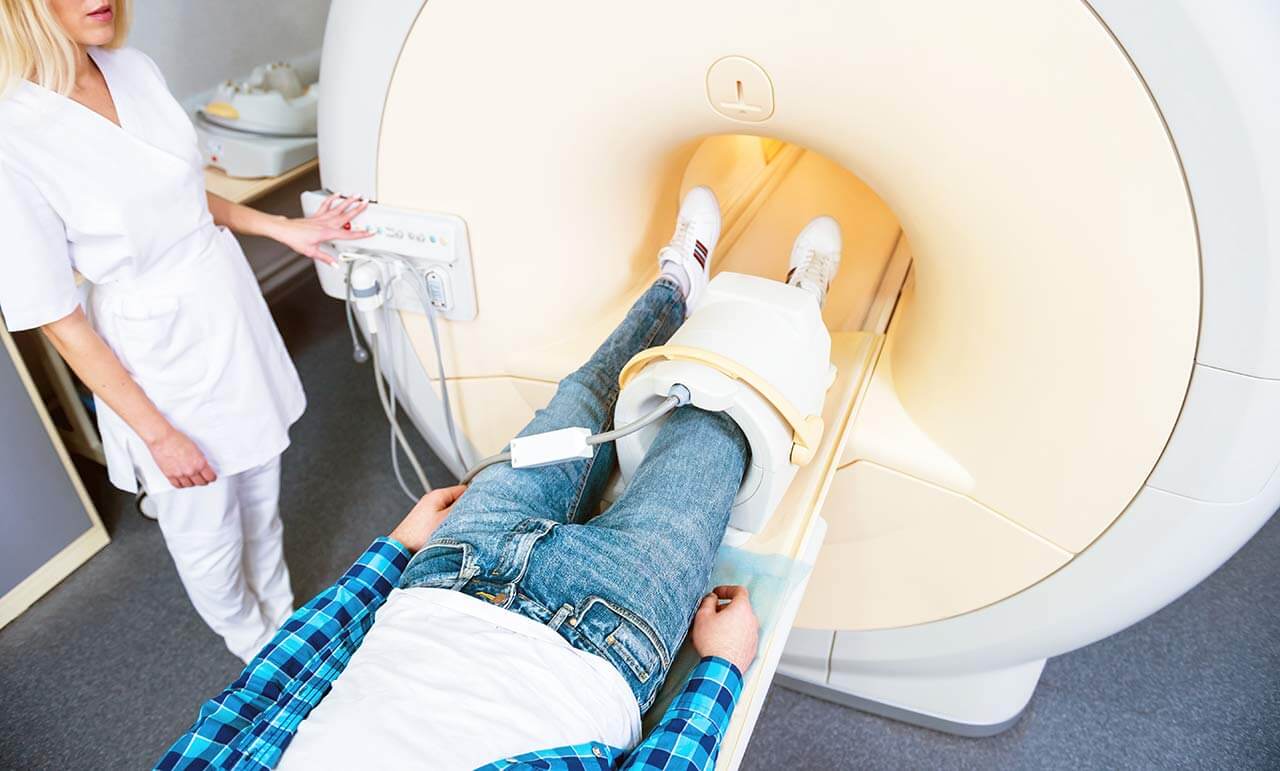
The program includes:
- Initial presentation in the clinic
- clinical history taking
- physical examination
- review of medical records
- laboratory tests:
- complete blood count
- biochemical analysis of blood
- lipid metabolism (HDL/LDL, cholesterol, triglycerides)
- kidney function tests (creatinine, urea)
- coagulation tests (aPTT, PT, INR)
- inflammation indicators (CRP, ESR)
- X-ray examination of the knee joint
- CT/MRI scan of the knee joint (if indicated, 650/1200 €)
- injections of ACP (3x)
- nursing services
- consultations of related specialists
- treatment by chief physician and leading experts
- explanation of individual treatment plan
- written statement
How program is carried out
During the first visit, the physician conducts a clinical examination and goes through the results of previous diagnostic procedures. After that, you will undergo the necessary additional examinations, such as the laboratory blood and urine tests, X-ray of the knee joint, MRI or CT scan. After a comprehensive assessment of the health condition the physician will make sure that you have no contraindications and schedule the therapy.
The first stage of treatment is venous blood sampling. Your physician will draw up to 50 ml of blood from your vein and place it in a special tube. After processing (centrifugation), platelet-rich plasma will be separated and drawn in a syringe. About 3-5 ml of such plasma are required for one procedure.
The next stage of treatment is the introduction of autologous conditioned plasma into the affected joint by intra-articular injection. To distribute the drug in the joint cavity evenly, you will need to bend and straighten your leg at the knee several times.
Injections are performed with a 3-5 days interval. During this time, you will receive symptomatic therapy and stay under medical supervision. During the final consultation after the last injection, the attending physician will conduct a follow-up examination and give you detailed recommendations for further follow-up and treatment.
Required documents
- Medical records
- X-ray examination, MRI/CT scan (if available)
Service
You may also book:
 BookingHealth Price from:
BookingHealth Price from:
About the department
The Department of Orthopedics at the Clinic for Molecular Orthopedics Duesseldorf provides the full range of medical services in the areas of its specialization. The medical facility specializes in the prevention, diagnostics and treatment of all musculoskeletal diseases. The department's diagnostic options include ultrasound examination, digital X-ray, computed tomography, magnetic resonance imaging, 3D spine and posture analysis, and gait analysis. When treating orthopedic diseases, the department's doctors use both conservative techniques and surgical interventions with the focus on minimally invasive operations to avoid severe trauma to healthy tissues. In addition, the department offers the very latest methods of biological therapy (molecular orthopedics), which allow achieving excellent results in the treatment of arthritis, rheumatic joint injuries, inflammatory and degenerative processes in the joints and spine. Biological therapy is a modern alternative to the surgical treatment of the above mentioned pathologies, when conservative therapeutic procedures do not give the desired result. The work of the specialists of the medical facility is based on an individual approach to each patient, therefore, during the development of a treatment regimen, doctors always take into account the particular clinical indicators of the patient. The department's medical team makes every effort to provide the patient with high-quality and maximally sparing treatment, after which he will forget about pain and movement restrictions. The department is headed by Dr. med. Markus Granrath.
Arthrosis is one of the most common orthopedic pathologies. The disease causes a gradual destruction of the cartilage tissue of the joints and, without timely treatment, often leads to disability – a person experiences such a strong pain syndrome that he cannot move normally. Arthrosis can affect any joints, but in most cases doctors have to deal with knee, hip and ankle arthrosis. Until recently, such methods as drug therapy, physiotherapeutic procedures, and surgical treatment (arthroscopy or endoprosthetics) were used to combat the pathological process. The department's specialists successfully use in their clinical practice another highly effective and safe method – biological therapy. The essence of the technique is the administration of medicines based on the patient's platelet-rich plasma, which acts as a natural source of growth factors required for regenerative processes. The doctor collects blood, after which the required plasma is separated in a special centrifuge. After a while, the obtained biological material is injected into the affected joint, tendons, muscles or ligaments. The therapeutic manipulation is performed by experienced doctors, under CT guidance. The main advantage of the procedure is its safety and the absence of side effects. It is clinically proven that the technique gives excellent results – the patient's pain syndrome disappears and mobility improves. Prior to prescribing biological therapy to the patient, he undergoes a thorough preliminary examination in order to assess the advisability of such treatment.
The department's doctors also have in their arsenal such conservative treatment methods as manual therapy, shock wave therapy, electrical and ultrasound muscle stimulation, as well as acupuncture. Each of these methods helps the doctors to effectively eliminate pain syndromes caused by various orthopedic diseases. The above-mentioned types of therapy are practically painless. To achieve a successful result, a systemic course of one or another therapy or a combination of these methods is usually required. The treatment is carried out by a specially trained doctor who has a perfect command of a particular type of therapy.
The operation always acts as a last-line treatment, when, after studying the results of the preliminary diagnostics, doctors come to the conclusion that conservative therapy will be ineffective or will not improve the patient's condition at all. The team of the department's orthopedists performs surgical procedures for the treatment of diseases of the spine, hip, knee, shoulder, elbow and ankle joints, as well as foot pathologies. The surgeons of the medical facility specialize in arthroscopic and minimally invasive operations, during which only one or several minimal incisions in the skin and soft tissues are performed to provide surgical access, through which special instruments and a miniature camera are inserted. Such an approach allows displaying images of the surgical field on a large screen. Thus, the surgeon can see the pathological focus in multiple zooming and perform the necessary manipulations to eliminate it. The use of low-traumatic surgical techniques guarantees the patient a quick postoperative recovery and mild pain syndrome. The health risks during and after the intervention are also practically zero. The department's surgeons have unique and long experience in the surgical treatment of various orthopedic pathologies, so patients can be sure that the surgery will be successful and with a good result.
The department's range of diagnostic and therapeutic options includes:
- Diagnostics
- Ultrasound examinations
- Digital X-ray
- Computerized tomography
- Magnetic resonance imaging
- 3D spine and posture analysis
- Gait analysis
- Treatment
- Conservative treatment
- Biological therapy
- Pharmacotherapy
- Manual therapy
- Shockwave therapy
- Electrical and ultrasound muscle stimulation
- Acupuncture (classical and laser technique)
- Surgery
- Spinal surgery
- Surgical interventions for spinal disc herniation
- Surgical interventions for spinal stenosis
- Facet joint infiltration and periradicular therapy for back pain management
- Vertebroplasty and kyphoplasty for vertebral fracture treatment
- Shoulder surgery
- Endoscopic subacromial decompression for impingement syndrome
- Surgical interventions for rotator cuff tears
- Surgical interventions for shoulder labral tear (Bankart procedure)
- Partial and total shoulder replacement surgery
- Elbow surgery
- Surgical interventions for epicondylitis
- Surgical interventions for cubital tunnel syndrome
- Hip surgery
- Arthroscopic interventions
- Partial and total hip replacement surgery
- Surgical interventions for femoroacetabular impingement syndrome
- CT-guided injection therapy for pain management in arthrosis
- Knee surgery
- Surgical interventions for patellar luxation
- Surgical interventions for meniscus tear
- Corrective knee osteotomy
- Cartilage transplantation
- Partial and total knee replacement surgery
- Foot and ankle surgery
- Cartilage transplantation
- Abrasive arthroplasty
- Interventions for forefoot deformities
- Arthrodesis
- Spinal surgery
- Conservative treatment
- Other medical services
Curriculum vitae
University Education and Professional Career
- Since 1998 Head Physician of the Department of Orthopedics at the Clinic for Molecular Orthopedics Duesseldorf.
- 1998 Board certification in Orthopedics.
- 1995 - 1998 Research Fellow, Department of Orthopedics at the University Hospital Duesseldorf.
- 1993 - 1995 Research Fellow in the Department of Traumatology and Reconstructive Surgery at the Charite University Hospital.
- 1991-1993 Internship, Department of Arthroscopic Surgery and Sports Medicine, Orthopedic Hospital Manhagen Grosshansdorf.
- 1993 Thesis defense, University of Duesseldorf. Subject: "Influence of various methods of rehydration on the stability and composition of bone grafts after lyophilization, sterilization using gamma rays and adipose tissue extraction".
- 1985 - 1991 Study of Human Medicine at the University of Duesseldorf.
Memberships in Professional Societies
- German-speaking Working Group for Arthroscopy (AGA).
- International Cartilage Repair Society (ICRS).
- German Society of Orthopaedic Sports Medicine and Orthopaedic Traumatology (GOTS).
Photo of the doctor: (c) Gemeinschaftspraxis Königsallee Zentrum für Molekulare Orthopädie
About hospital
The Clinic for Molecular Orthopedics Duesseldorf is an advanced medical facility, the main clinical focus of which is the diagnostics and treatment of musculoskeletal diseases. A special feature of the clinic is that here patients can undergo treatment not only with the help of classical conservative methods, but also with the help of innovative biological therapies, the main advantage of which is the minimum number of side effects and high efficiency. The specialists of the clinic use in their work only methods of evidence-based medicine that have passed all the necessary clinical trials and have proven their safety. The health of patients suffering from bone, joint, tendon, muscle and spinal diseases is in the safe hands of a highly professional team of doctors and nursing personnel who have been specifically engaged in the treatment of orthopedic pathologies for many years and have impressive experience in this narrowly focused field.
The clinic has modern diagnostic rooms equipped with the state-of-the-art systems for ultrasound examinations, classical and digital X-ray, computed tomography, magnetic resonance imaging, systems for 3D spine and posture analysis, as well as gait analysis. Comprehensive diagnostics with the use of progressive equipment allows the doctors of the clinic to assess the condition of the musculoskeletal system, to accurately detect pathological changes and their causes, as well as to select the optimal set of therapeutic measures to relieve pain, restore mobility and normal well-being of the patient in general.
The therapeutic options of the clinic are very wide and varied, while the rich experience of the medical team allows for choosing the most effective and low-traumatic treatment procedures. The methods of molecular orthopedics are usually used by medical specialists during the treatment of arthritis, rheumatic joint lesions, inflammatory and degenerative changes in the joints of the upper and lower limbs, as well as in the spine. The patients of the clinic are also offered such treatment methods as manual therapy, shock wave therapy, electrical and ultrasound muscle stimulation, acupuncture, etc. The physicians also perform the full range of musculoskeletal surgery using modern minimally invasive surgical techniques.
The entire staff of the clinic strives to make a pleasant and friendly environment in the medical facility. The specialists are convinced that during the entire therapeutic process, the patient should receive not only high-quality and effective treatment, but also feel as comfortable as possible. The doctors of the clinic approach each clinical case with maximum responsibility, striving to satisfy all the needs and wishes of the patient. The key goal of the medical team of the orthopedic clinic is to provide the patient with the most effective treatment and return him to his usual way of life without pain and restrictions.
Photo: (с) depositphotos
Accommodation in hospital
Hotel
You may stay at the hotel of your choice during the outpatient program. Our managers will support you for selecting the best option.




